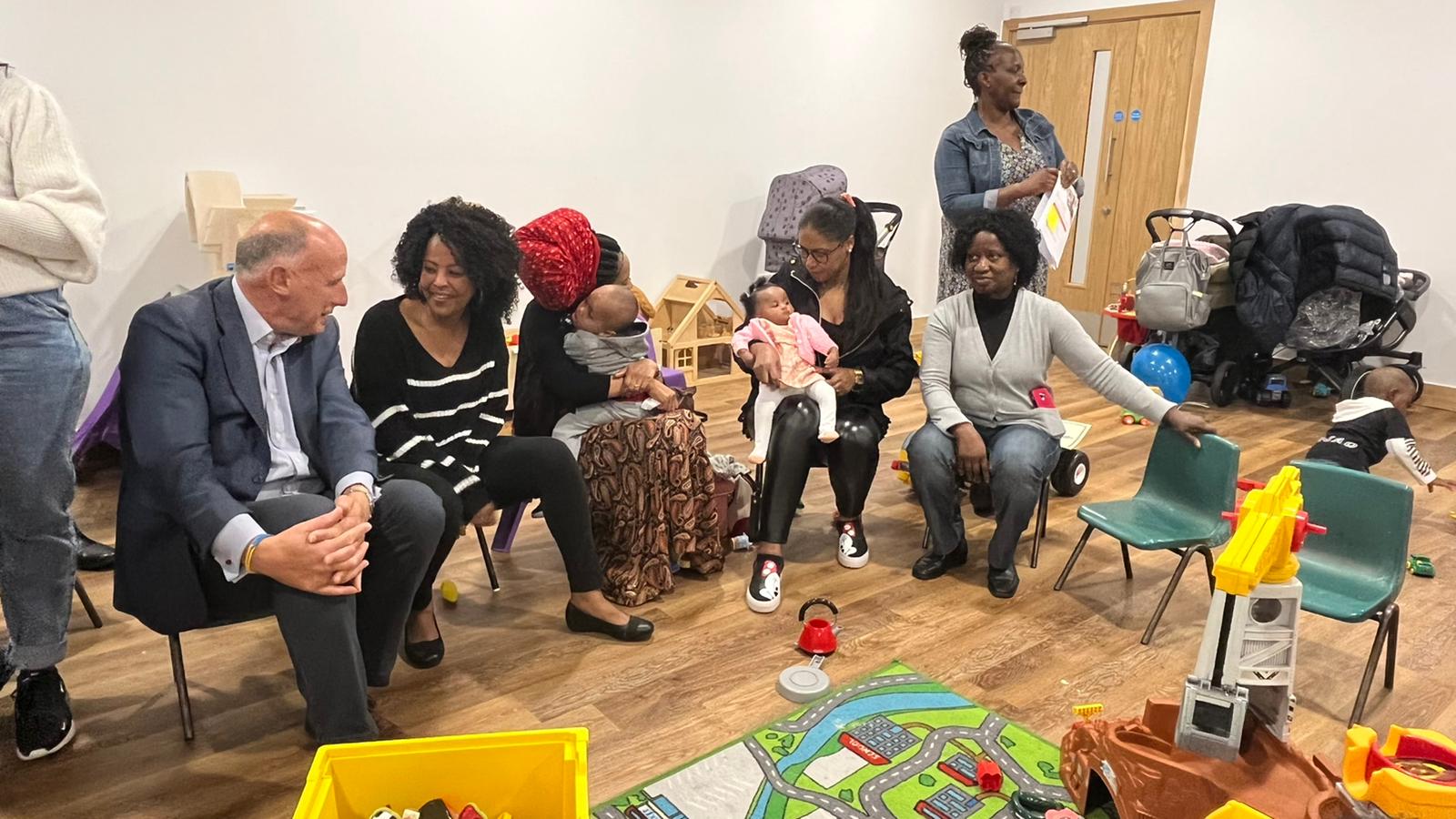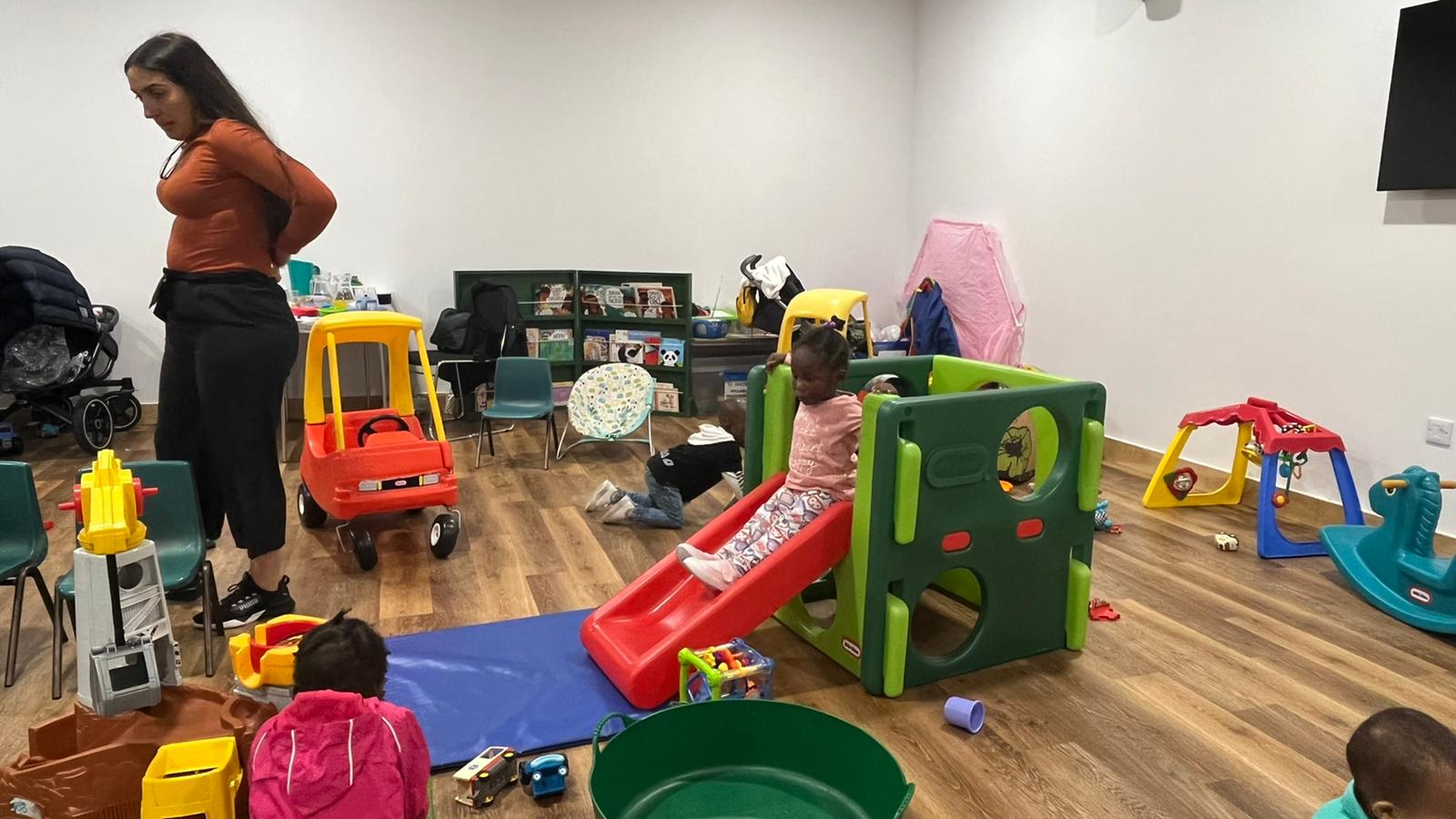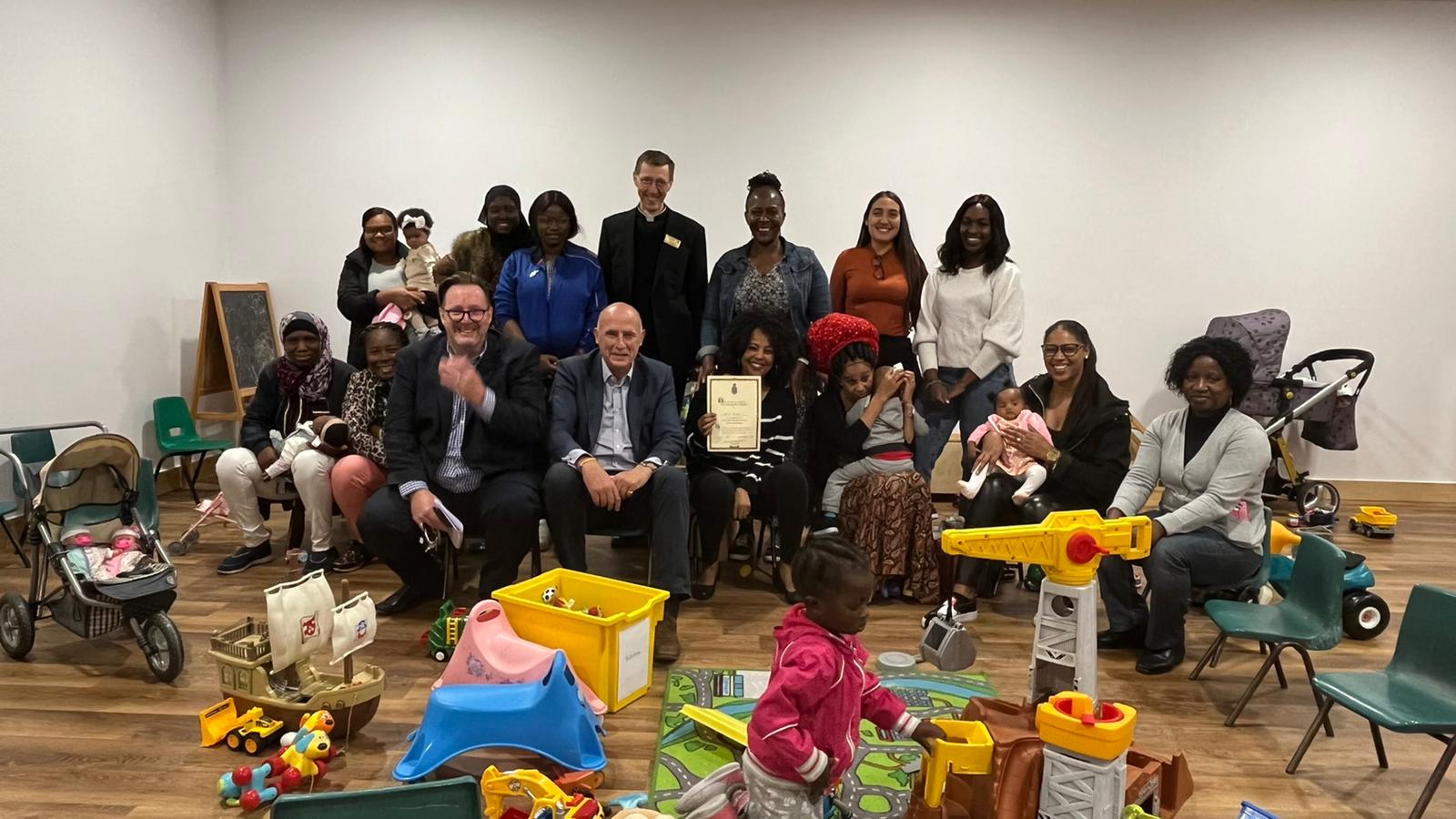Suffolk Black Mother & Babies
PROJECT


About Us
The Suffolk Black Mothers and Babies Project is aimed at reducing inequalities and racial disparities in maternal and child health care among black women so as to decrease maternal complications, maternal mortality and neonatal deaths.
The Need
RACISM AND DISCRIMINATION

- Our baseline study indicated that a lot of BME and migrant women had negative experiences during their pregnancy, while birthing and post-pregnancy due to the racism and discrimination.
- Racial residential segregation or redlining is a prime example of structural racism that prevents people of colour from purchasing homes due to lack of access to microfinance and thereby shaping communities and resources available to them. This cascades to the inequitable access to fundamental maternal and neonatal healthcare leading to adverse maternal outcomes and neonatal health.
- Black women currently living in redlined areas are at greater risk for adverse birth outcomes based on the area of residence due to factors such as pollution, neighbourhood conditions and access to quality health care and facilities.
- Racism is the root cause for many social determinants of health. Racism is embedded in macro-level systems where social forces, institutional practices and ideologies work together to reinforce and perpetuate racial and ethnic inequity. The same can be said for women
- Delay of prenatal care initiation has been associated with experiences of racism.
- Black women have three times the odds of discrimination due to race resulting in a high number of stressful life events or chronic stress prior birth.
- Several studies have indicated a relationship between racial residential segregation and the prevalence of hypertensive disorder of pregnancy among black women residing in higher poverty neighbourhoods.
Gender Inequality

- Harmful socio-cultural and customary norms facilitate and perpetuate gender inequality. The social construct of gender places certain gender roles on women and men. Women are thereby relegated to sexual reproductive roles, of being mothers and wives, taking care of the household all the while also working. This places an undue burden on women which causes maternal complications and foetal distress.
- Gender inequality leads to societal vulnerability where women are subject to sexual violence and infectious diseases such as HIV/AIDS leading to unwanted pregnancies and further complicate such pregnancies contributing to high maternal mortality.
- Gender inequality and gender roles which place women as household carers and men as financial providers causes women to be financially dependent on their husbands thereby diminishing women’s autonomy to make unilateral and informed decisions relating to maternal and neonatal health.
- Black Women are paid less for the same amount of work compared to the white male meaning black women and their families may have to choose between essential resources. The trade-offs are evident in black women’s health outcomes and use of medical care
Socio-economic Factors

- Racial and ethnic minority women deliver in different and lower quality hospitals than whites with higher maternal morbidity rates.
- Research demonstrates without mothers, children particularly from female-headed households in BME and migrant communities remain at greater risk dropping out of school and simply not surviving.
- Adequate nutrition, health and sanitation are all contingent on the ability to afford and maintain such goods and services. Therefore, underprivileged women from BME and migrant backgrounds in abject poverty do not have food security which to their health and that of their unborn child which becomes heightened when pregnant.
- Due to BME and migrant women’s socio-economic status they have limited access to skilled health personnel and invariably have to use low quality public maternal and neonatal health services where black-serving hospitals provide lower quality maternity care and have higher rates of maternal complications than other hospitals.
- The proportion of low-income BME and migrant women attending pre-natal care treatment and postpartum appointment is low due to costs in transportation and childcare.
- Illiterate pregnant women are less inclined to access the necessary health services limiting their ability to be adequately informed about maternal health care options limiting their autonomy over health.
- Infant mortality is high among mothers with low levels of education with preterm birth and low birth weight being the leading causes of death with the BME community having the highest rates in England.

Mental Health
- Pregnancy and childbirth can be a trigger for a wider variety of psychological problems, a vulnerable time for mothers and the family unit as a whole. The stress caused can affect the mother and the unborn baby’s foetal development.
- Lack of an adequate support system can cause pregnant women and mothers to self-isolate leading to depression which also hampers maternal and neonatal health.
- Maternal postnatal depression has detrimental not only to the mother but is associated with increased adverse, long lasting cognitive and emotional changes in the child.
GBV
- Whitton is one of the most marginalised and disadvantaged areas of Ipswich and England. Being in the 40% of most deprived areas in England, Whitton is resident to a high number of BME mothers who are either unemployed or working less than 30 hours per week in occupations that are associated with low wages and low skill. This results in women experiencing intimate partner violence due to financial dependence.
- The cases of domestic violence have surged considerably in the wake of the COVID-19 pandemic and the ensuing lockdown that saw pregnant women being confined with their abusers. Moreover, the massive job loss that has resulted from the outbreak of the pandemic has resulted in women being thrown in abject poverty and squalor exacerbating their vulnerability to sexual abuse, human trafficking, modern slavery and sexual exploitation.
Services Provided
IN THE COMMUNITY
- Support Group Network;
- Counselling;
- On the bench be-friending service;
- Trained community champions who are the first responders in the community and are the primary point of contact for project beneficiaries should they need support;
- Maternity advocates;
- advocacy campaigns to raise awareness through sign posting, pamphlets, social media and community engagements;
- provision of transportation and a volunteer that will accompany mothers to medical appointments;
- provision of free legal advice on matters that affect BME mothers such as asylum applications, maintenance, maternity leave, non-molestation orders and awareness on human rights that pertain to them as BME women;
- creation of Maternity Safe Spaces;
- improvement of employability skills through vocational skills training and GCSE tutoring
- Cultural exchange events;
- Information sessions;
- Baby Bank Drives and Campaigns;
- English as a second language weekly classes;
- Career Guidance; and
- Peer to peer support.
Black Maternity Grandmothers
PROJECT
In tandem with the principle of leaving no one behind, Phoebe has embarked on the Black Maternity Grandmothers project to include elderly women from the BME and migrant communities.
Our grandmothers are retired nurses and midwives from a range of backgrounds who offer support and guidance to pregnant women and new mothers. Through home visits and maternity workshops, women lacking support networks can receive guidance during this period of their lives.
Phoebe Sponsored Day Trips
We sponsor mother-child(ren) day trips during summer breaks as part of our support service system.
Our aim is simple to give children the opportunity to just be children, while providing the resources for family bonding time between children and their mothers.
Do you need support?
JUST GET IN TOUCH

If you are pregnant, or recently became a mother, and come from a BME background, please contact us and benefit from our services!
01473760966








